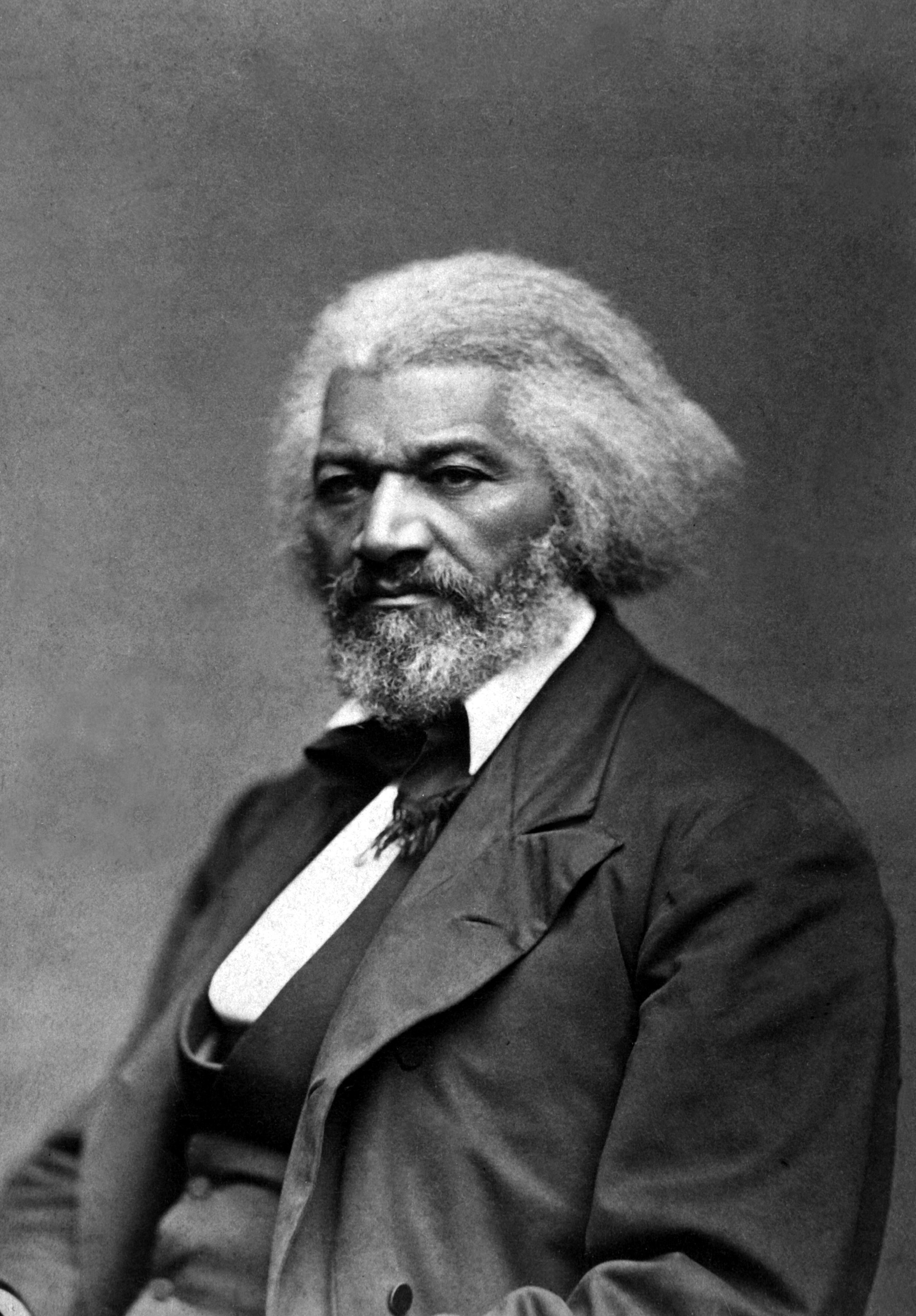Frederick Douglass najznámejšie citáty
Frederick Douglass: Citáty v angličtine
Letter to His Old Master. To my Old Master Thomas Auld
Zdroj: 1840s, Narrative of the Life of Frederick Douglass, An American Slave (1845), Ch. 10
Zdroj: https://frederickdouglass.infoset.io/islandora/object/islandora%3A2333 "Negroes and the National War Effort"]
speech in Philadelphia (6 July 1863): Should the Negro Enlist in the Union Army? (1863)
1890s, Speech at the Abolitionist Reunion in Boston (1890)
1860s, Our Composite Nationality (1869)
1890s, Speech at Tremont Temple (1890)
1870s, The Unknown Loyal Dead (1871)
1860s, Our Composite Nationality (1869)
1880s, Plea for Free Speech in Boston (1880)
1860s, The Constitution of the United States: Is It Pro-Slavery or Anti-Slavery? (1860)
1880s, Plea for Free Speech in Boston (1880)
“In all the relations of life and death, we are met by the color line.”
Speech at the Convention of Colored Men, Louisville, Kentucky (24 September 1883).
1880s, Speech at the Convention of Colored Men (1883)
As quoted in "Sustaining Black Studies", by Winston A. Van Horne, Journal of Black Studies, Vol. 37, No. 3, (January 2007)
1850s
1860s, Our Composite Nationality (1869)
1880s, The Future of the Colored Race (1886)
1880s, Speech on the Anniversary of Emancipation (1886)
1880s, Plea for Free Speech in Boston (1880)
Fellow citizens, I end, as I began, with congratulations. We have done a good work for our race today. In doing honor to the memory of our friend and liberator, we have been doing highest honors to ourselves and those who come after us. We have been fastening ourselves to a name and fame imperishable and immortal; we have also been defending ourselves from a blighting scandal. When now it shall be said that the colored man is soulless, that he has no appreciation of benefits or benefactors; when the foul reproach of ingratitude is hurled at us, and it is attempted to scourge us beyond the range of human brotherhood, we may calmly point to the monument we have this day erected to the memory of Abraham Lincoln.
1870s, Oratory in Memory of Abraham Lincoln (1876)
The man who could say, 'Fondly do we hope, fervently do we pray, that this mighty scourge of war shall soon pass away, yet if God wills it continue till all the wealth piled by two hundred years of bondage shall have been wasted, and each drop of blood drawn by the lash shall have been paid for by one drawn by the sword, the judgments of the Lord are true and righteous altogether', gives all needed proof of his feeling on the subject of slavery. He was willing, while the south was loyal, that it should have its pound of flesh, because he thought that it was so nominated in the bond; but farther than this no earthly power could make him go.
About Abraham Lincoln https://web.archive.org/web/20150302203311/http://www.lib.rochester.edu/index.cfm?PAGE=4071#_ftnref57.
1870s, Oratory in Memory of Abraham Lincoln (1876)
As a matter of selfish policy, leaving right and humanity out of the question, we cannot wisely pursue any other course. Other governments mainly depend for security upon the sword; ours depends mainly upon the friendship of the people. In all matters, in time of peace, in time of war, and at all times, it makes its appeal to the people, and to all classes of the people. Its strength lies in their friendship and cheerful support in every time of need, and that policy is a mad one which would reduce the number of its friends by excluding those who would come, or by alienating those who are already here.
1860s, Our Composite Nationality (1869)
The fact that the Chinese and other nations desire to come and do come is a proof of their capacity for improvement and of their fitness to come.
1860s, Our Composite Nationality (1869)
We are not only bound to this position by our organic structure and by our revolutionary antecedents, but by the genius of our people. Gathered here from all quarters of the globe, by a common aspiration for national liberty as against caste, divine right govern and privileged classes, it would be unwise to be found fighting against ourselves and among ourselves, it would be unadvised to attempt to set up any one race above another, or one religion above another, or prescribe any on account of race, color or creed.
1860s, Our Composite Nationality (1869)
1860s, Should the Negro Enlist in the Union Army? (1863)
As quoted in Frederick Douglass and the Fourth of July https://books.google.com/books?id=-m2WBgAAQBAJ&pg=PT106&lpg=PT106&dq=%22scaffolding+to+the+magnificent+structure%22+douglass&source=bl&ots=KT4-pHUo5-&sig=ACfU3U21MIZj_niQo7pIGSxeO5vhEkXq4w&hl=en&sa=X&ved=2ahUKEwim6fvM3I3iAhVqiOAKHWIqDK8Q6AEwB3oECAcQAQ#v=onepage&q=%22scaffolding%20to%20the%20magnificent%20structure%22%20douglass&f=false
1860s, Should the Negro Enlist in the Union Army? (1863)
1860s, Should the Negro Enlist in the Union Army? (1863)
“I do not ask you about the dead past. I bring you to the living present.”
1860s, Should the Negro Enlist in the Union Army? (1863)
1860s, Should the Negro Enlist in the Union Army? (1863)
1860s, Should the Negro Enlist in the Union Army? (1863)
